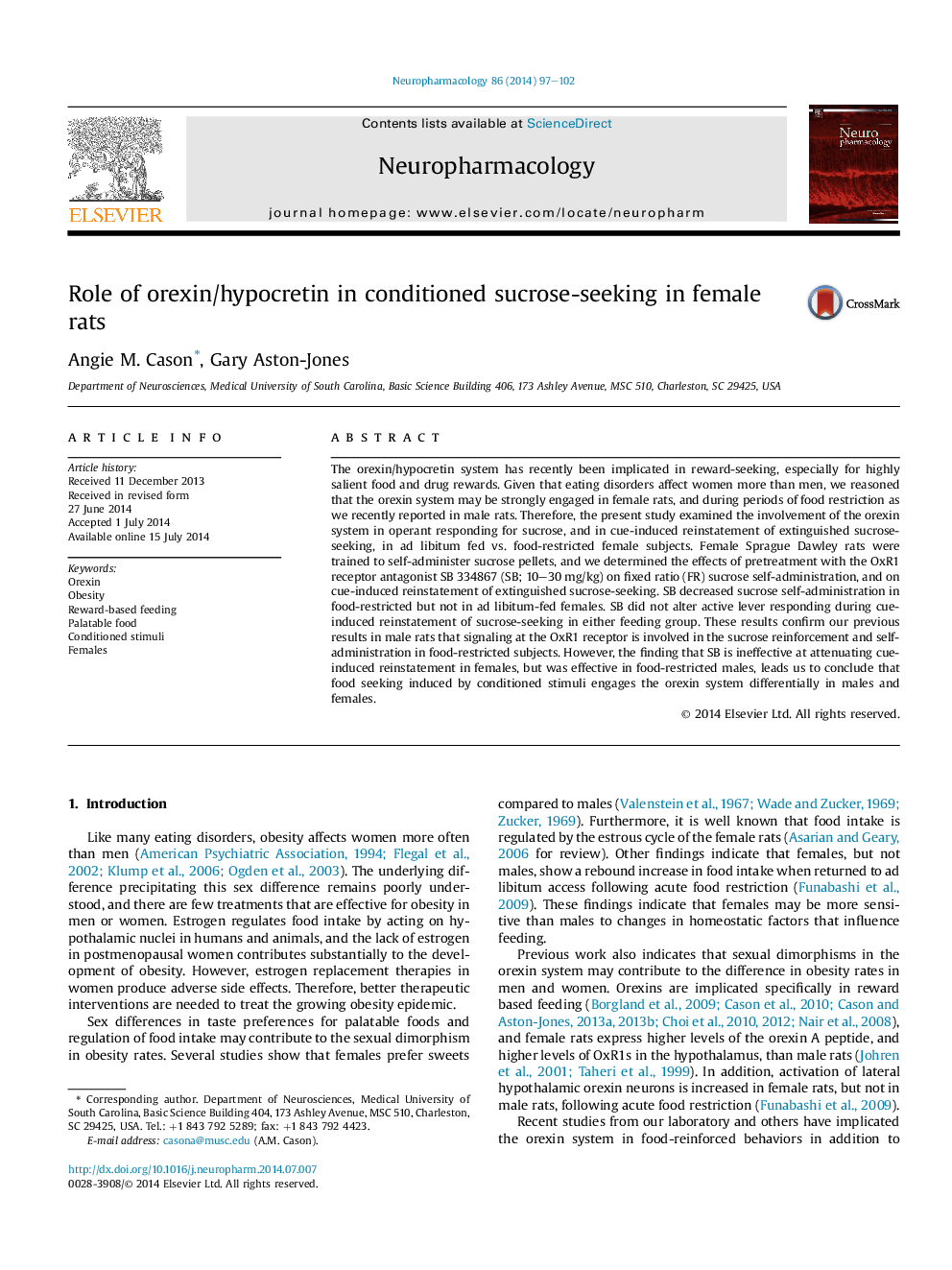| Article ID | Journal | Published Year | Pages | File Type |
|---|---|---|---|---|
| 5814173 | Neuropharmacology | 2014 | 6 Pages |
Abstract
The orexin/hypocretin system has recently been implicated in reward-seeking, especially for highly salient food and drug rewards. Given that eating disorders affect women more than men, we reasoned that the orexin system may be strongly engaged in female rats, and during periods of food restriction as we recently reported in male rats. Therefore, the present study examined the involvement of the orexin system in operant responding for sucrose, and in cue-induced reinstatement of extinguished sucrose-seeking, in ad libitum fed vs. food-restricted female subjects. Female Sprague Dawley rats were trained to self-administer sucrose pellets, and we determined the effects of pretreatment with the OxR1 receptor antagonist SB 334867 (SB; 10-30Â mg/kg) on fixed ratio (FR) sucrose self-administration, and on cue-induced reinstatement of extinguished sucrose-seeking. SB decreased sucrose self-administration in food-restricted but not in ad libitum-fed females. SB did not alter active lever responding during cue-induced reinstatement of sucrose-seeking in either feeding group. These results confirm our previous results in male rats that signaling at the OxR1 receptor is involved in the sucrose reinforcement and self-administration in food-restricted subjects. However, the finding that SB is ineffective at attenuating cue-induced reinstatement in females, but was effective in food-restricted males, leads us to conclude that food seeking induced by conditioned stimuli engages the orexin system differentially in males and females.
Related Topics
Life Sciences
Neuroscience
Behavioral Neuroscience
Authors
Angie M. Cason, Gary Aston-Jones,
